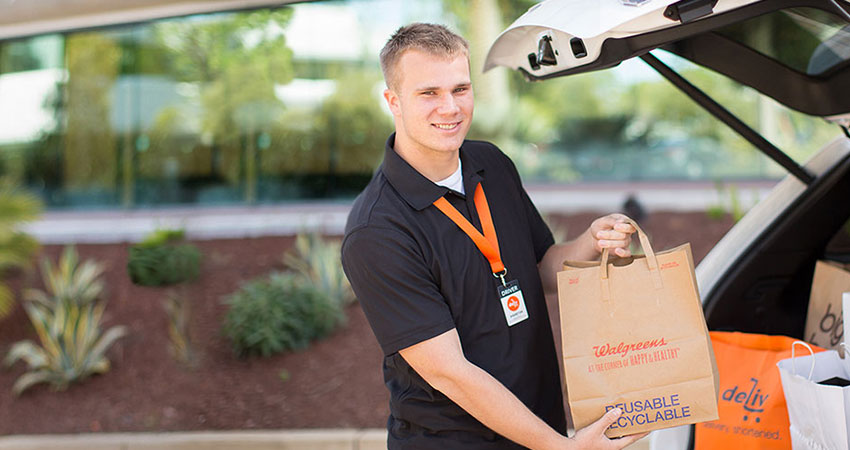On the same day it was announced Deliv was winding down its operations this summer, it came out that Target is in talks to snap up some of Deliv’s technology assets to bolster its local ecommerce fulfillment and bring founding CEO Daphne Carmelli onboard, NBC reported.
Target, which acquired Shipt in 2017 to handle local grocery deliveries, had considered buying all of Deliv but passed due to the company’s unprofitability, a source told NBC. This had been the case even in the midst of the ecommerce and last mile bonanza during the COVID-19 lockdown of most of physical retail.
Some grocery retailers had also reportedly been looking at a Deliv acquisition before Target stepped in, sources said. The company had been valued at $190 million as of 2018, but is taking a loss in the current environment.
In an early sign of trouble, Walmart discontinued its partnership with Deliv in February 2019, using a range of other delivery firms including DoorDash and Postmates.
Deliv plans to wind down its operations by August, the Wall Street Journal reported. It had been particularly challenged as much of its business was with physical retailers like Macy’s, Best Buy, Banana Republic, Crate & Barrel and Foot Locker, with most of their doors remaining closed. Deliv’s model involved setting up central collection points, often in malls, to build economical density and connect local delivery jobs to gig drivers via its app.
Sucharita Kodali, a principal analyst with Forrester, said she was baffled by the failure of Deliv at a time when last-mile delivery of ecommerce is exploding. Deliv had expanded beyond its mall retail roots to include local small business and grocery delivery services, but apparently didn’t gain enough traction to survive on its own.
Kodali also noted how same-day delivery platform Bringg just completed a $30 million funding round in April, bringing the total raised to $83 million, so investment dollars are there for the space. Ironically, that’s about the same as the $85 million Deliv raised in five rounds since its founding in 2012, according to PitchBook.
“These kinds of software business are usually not super labor intensive, being entirely gig economy based,” Kodali said. “If their drivers were sucking resources, why not have a plan B with Uber, Lyft or Instacart? It’s most confusing. This is the one time that, if they didn’t make it now, they definitely weren’t going to make it after (COVID-19).”
Satish Jindel, president of shipping data intelligence firm ShipMatrix, said he wasn’t surprised at Deliv’s demise and predicted it a couple years ago, based on a lack of operational experience.
“Being able to raise money doesn’t mean you can run a company,” Jindel said. “There was nothing unique about it. They were hitched to the malls, malls were declining and continue to decline, the coronavirus situation just expedited the process. They had no idea how parcels and deliveries are done, where the costs are and how to manage them. UPS probably invested to see how the model works, but I don’t think they expected a return.”
Jindel acknowledged that Target has a very smart management team and clearly saw value in the Deliv technology. “They must know a lot more about it than others,” he said. “We’re stuck to the whole notion of, anything that looks like a last mile solution, people throw money at it. Look at Moovit, Intel paid $900 million this week for a company that helps people calculate routes.”
Intel in fact has larger plans for Moovit, looking to integrate the app with its self-driving technology acquisition MobileEye from 2017.
Target acquired Shipt for $550 million in December 2017, and has been expanding its same-day service ever since. It’s been a big part of the department store’s ecommerce success story, along with ship from store and curbside pickup across the fleet. Shipt uses local pickers to process store orders and deliver them to customers. It has kept its status as an independent operation and maintains other retail customers besides Target.

